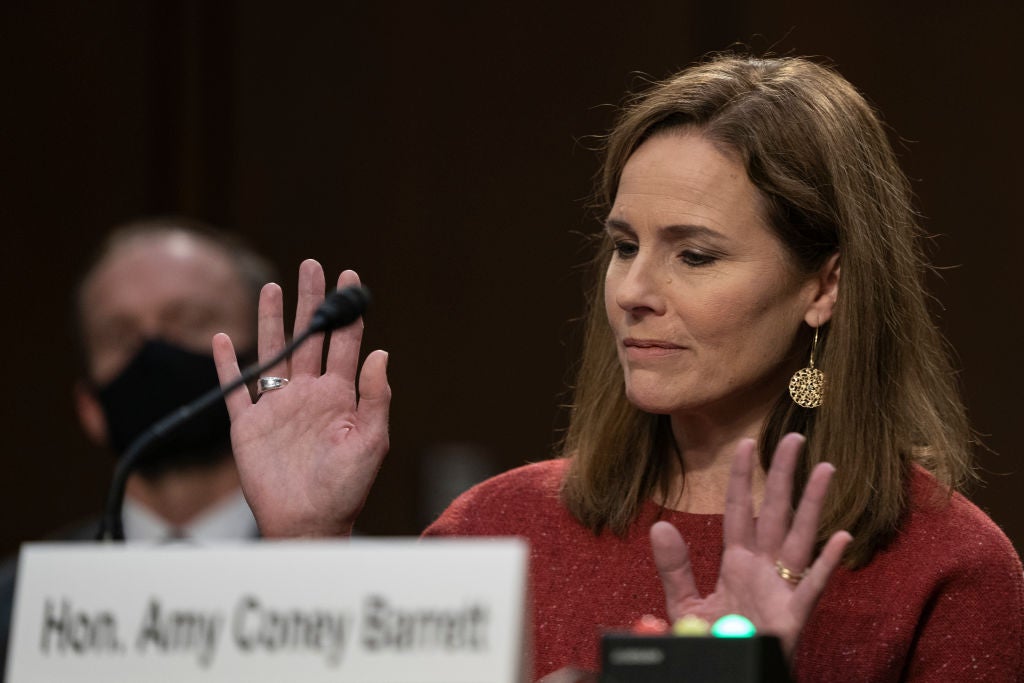Amy Coney Barrett apologizes while under fire for using the term ‘sexual preference’ to describe LGBTQ+ people
'I certainly didn't mean and would never mean to use a term that would cause any offense in the LGBTQ community. If I did, I greatly apologize for that’

Donald Trump’s nominee to the Supreme Court has apologized for using the term “sexual preference” after comments she made at her second day of senate confirmation hearings stirred controversy and caused alarm among LGBTQ+ activists.
Civil rights groups condemned Judge Amy Coney Barrett’s use of the term in response to questions on Tuesday about whether she would defend the right for same-sex couples to get married in the US after the Supreme Court’s decision in Obergefell v. Hodges.
“I have no agenda,” she said, “and I do want to be clear that I have never discriminated on the basis of sexual preference and would not ever discriminate on the basis of sexual preference.”
Describing her use of the term as a “dogwhistle,” the leading LGBTQ+ civil rights group Lamba Legal wrote in a tweet: “The term 'sexual preference' is used by opponents of equality to suggest that being #LGBTQ is a choice."
Several prominent civil rights groups continued to speak out against the federal judge and Supreme Court nominee’s use of the term throughout the day, calling it “outdated” and offensive.
Meanwhile, prominent conservatives lambasted the left online and noted how major media outlets covering the developments had used previously used “sexual preference” in some variation of the years.
Senator Mazie Hirono confronted Judge Barrett over her use of the term, saying: “Let me make clear - sexual preference is an offensive and outdated term.”
“It is used by anti-LGBTQ activists to suggest that sexual orientation is a choice,” she added. “It is not.”
The judge apologized for her use of the term, saying she did not intend to offend anyone with her comments.
“I certainly didn't mean and would never mean to use a term that would cause any offense in the LGBTQ community," she said. "If I did, I greatly apologize for that."
Even before her use of the term “sexual preference,” LGBQT+ groups feared Judge Barrett’s appointment to the nation’s highest court and the potential implications it could have on issues like marriage equality and workplace protections against discrimination on the basis of sexual orientation or gender identity.
She served on the board of trustees for a group of private schools in Indiana from 2015 to 2017 which barred children with unmarried parents from enrolling, the New York Times reported. The policy was adopted a year prior, at a time when the state had banned same-sex marriage, and effectively prevented same-sex couples from enrolling their children into Trinity Schools Incorporated, according to critics.
Judge Barrett, who would become Mr Trump’s third appointment to the Supreme Court if confirmed by the senate, has declined to say whether she supports the Supreme Court’s passage of marriage equality, along with a list of other key decisions on things like women’s reproductive rights and Roe v. Wade.
Join our commenting forum
Join thought-provoking conversations, follow other Independent readers and see their replies
Comments